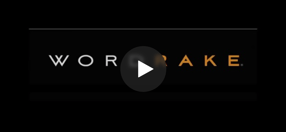Understanding How We Use Email
With summer upon us, this seemed like a good time to revisit the method of communication that nearly put the U. S. Postal Service out of business. Just between the two of us, I miss the old days, arriving at the mailbox one minute late, the taste of glue on my tongue. I know you do, too. Those were good times. After much thought, however, I have decided that email might be around for a while, so we should make peace with it and figure out how to use it effectively. In that spirit, today and for the next three weeks, we will explore the art and science of email.)
When I first tried email, I had to ask my secretary to print each one, so I could read it and dictate a response over her shoulder. When I learned how to use it myself, I remember feeling a little jaunty. Words I would never write on paper seemed to fly from my fingertips, loose stuff, funny stuff, CLEVER STUFF! I loved hitting “Reply All” to let EVERYONE know how clever I was! I could hardly contain myself!
I have mostly recovered from those days, but a vestige remains. Psychologists call this the "online disinhibition effect." It’s similar to wearing a mask at Mardi Gras, which frees us to drink bourbon through a straw and goose strangers.
However psychologists try to explain it, we approach email with a different mindset. In an article titled “Email’s Dark Side: 10 Psychology Studies,” the author notes:
People consistently overestimate their ability to communicate effectively with email.”
A 2010 study found that “participants lied 50% more when they negotiated over email compared with pen-and-paper.” One of the reasons, surmised researchers:
“Emails are less permanent: it feels closer to chatting than writing a letter.”
And therein lies the crux of the problem: Subconsciously, a sheet of paper and an envelope feel permanent, and this informs how and what we write. When we know it will be around for a long time, we try harder to do it well. Email feels like it’s going straight into someone’s ear, rattle around for a moment, then head out the other side. So why should we care?
Here’s why: wisely or unwisely, we have embraced this medium to communicate important things, and the devil-may-care informality inherent in its use inspires us not to worry about typos and grammatical slips and bloated phrases, even as we use it to develop business, assuage clients, and convince regulatory agencies.
Remember that each of us has three vocabularies:
1. Our reading or comprehension vocabulary – by far the largest;
2. Our writing vocabulary – in the middle; and
3. Our speaking vocabulary – the smallest and least grammatical.
When speaking, we use, and tolerate (to a point) others using, ers and uhs and sos and wells and likes, and confusing who with whom and lay with lie because most of us can’t think fast enough when we speak to get it all grammatically correct; plus we have tone of voice, facial expressions, and body language to help us communicate. Our writing must be more precise than our speech because we have only words to convey our meaning.
Email is a weird hybrid existing between speaking and writing. In that gap, our email mindset might be loose and informal, but our business recipients do not forgive our typos, grammatical slips, and bloated, unnecessary, abstract, sometimes nonsensical phrasing. That’s where the tension lies: we write it as though the message is impermanent; they judge it and us as though it’s permanent.
If we’re to use email to communicate without embarrassing ourselves in front of colleagues and clients, we must understand that tension between the mindsets of permanence and impermanence and err on the side of precision.
For the next three weeks, we will explore how to communicate effectively in email, from addressing to editing to signing off.
Stay tuned next week for Guess Who’s Coming to Email (Act II of IV).




